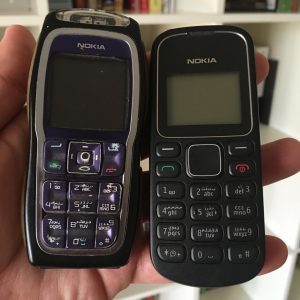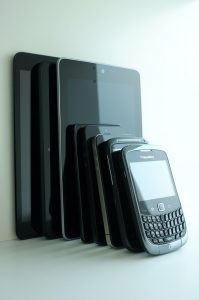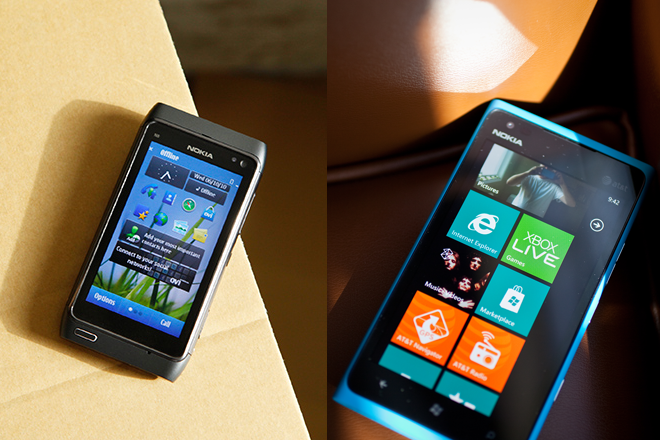Nokia Biggest Mistake | Nokia Lost Its Market Value
Table of Contents
Nokia Biggest Mistake
Nokia used to be a pioneer within the smartphone market, introducing shoppers to the smartphone with its initial Symbian sequence 60 instruments in 2002. For the following 5 years, Symbian telephones had little predicament keeping a management position within the smartphone %. Nokia’s biggest mistake is being a pioneer within the smartphone market, introducing shoppers to the smartphone with its initial Symbian sequence 60 instruments in 2002. For the following 5 years, Symbian telephones had little predicament keeping a management position within the smartphone. But in 2007, Apple presented its iPhone. With its full touchscreen and application-based running method, the iPhone transformed the very definition of what a smartphone must be.
Yet Nokia’s biggest mistake was not responding to the iPhone and the moving client demand that came with it. Because the years handed, the Symbian platform aged, and that age relatively confirmed when compared to iOS and, later, Android. At the same time, the smartphone market exploded more and more buyers opted for pocket-sized mini-computers instead of function phones with tedious WAP browsers.

When Apple came out with the iPhone, it confirmed the enterprise how the smartphone would be achieved correctly, Wayne Lam, IHS senior analyst, advised Wired. In hindsight, Nokia’s biggest mistake, it has to react to the iPhone more quickly. They didn’t make the leap of religion onto home windows cellphone except in 2011.
Now they are affected by their gradual response. Samsung, on the other hand, moved rapidly into the smartphone market. Granted, Samsung had the skills of working from the bottom up, whereas Nokia had a quite victorious smartphone platform that it simply didn’t need to quit. (The identical can also be mentioned of RIM’s Blackberry OS.) In the event you appear at Samsung a few years in the past, they had been nowhere to be found in the smartphone market. In contrast, Nokia and RIM had been leaders within the smartphone market, Alex Spektor, method Analytics analyst, told Wired. It’s a lot more complicated to be nimble and react to the changes in the market if you’re already a leading gamer.
Android Leader Paid Off (For Samsung) And Windows Cell Hasn’t Yet (For Nokia):
It was not simplest used to be Samsung rapid. It also wagers on multiple structures, including Android and Windows mobile phones, and it even had its own homegrown OS, Bada, simply in case none of the others labored out. However, in the end, Android paid off. Samsung selected Android at the right time, and it benefited from the maturation of that platform. Spector stated since Samsung has been the dominant player in the Android house, been ready to trip the coattails of that platform.
Nokia, then again, spent its time focusing on Symbian except the manufacturer’s recent partnership with Microsoft. But Nokia’s flagship Lumia home windows phones paid off but, as evidenced through Nokia earnings. It was once a good partnership on paper. Nonetheless, it was too late to rise above two years after introducing the iPhone and Android grow upmarket steam.
Hurting On Both Ends

No longer the most effective did Nokia biggest mistake, transfer too slowly in the smartphone market; it didn’t assume competition within the scale back finish of the market. Other producers like HTC, Huawei, and ZTE have attacked Nokia from the low-lead to developing markets like China. They were also squeezed on the backside by micro vendors, which individually will not be very large, but when you add them up, they pose a threat in the low-end of the market.
The traditional Nokia brick cell and the Snake sport on it bring back a variety of nostalgia. But that’s a predicament—purchasers, principally in establishing markets, accomplice the Nokia title with an extra generation of science. And in today’s world, having the most recent and shiniest device is what concerns.
Nokia was once the style of an older brand. There wasn’t a brand new panache to it. Samsung, as a marketed brand, was once perceived as an innovator. Nokia has legacy baggage. They’re the natural brick, Candybar phone maker, Lam stated.
Nokia didn’t market itself as an innovator. It has been doing much innovating anyway. At least now, not unless it entered the home windows mobile phone house.
Execution Is Key
Also, Nokia’s biggest mistake, Samsung, shines and takes place, and plenty of different producers are executed. Samsung mirrored Apple’s game plan through astonishing shoppers with an excessive-finish flagship line in its Galaxy S Android telephones.
When you look at what Apple achieved really well, it’s organizing its telephones beneath the iPhone brand. It’s a memorable, recognizable brand that purchasers stay up for, Spektor stated. Samsung has adopted an extraordinarily equivalent technique with their flagship mobile. Every consumer comprehends that a brand new Galaxy S is coming. It helps to construct up anticipation and drive patron demand.

But Samsung also has a broad portfolio of smartphone gadgets, costing less than $200 without a contract, which appeals to shoppers who don’t want to pay for an excessive-end cell like the Galaxy S or the iPhone. The organization additionally has expertise in its hardware manufacturing procedure.
Not like other producers, Samsung has the constructed-in efficiency of being a vertical organization, making their own show, processors, and many others, Lam said. While Nokia’s execution has been shoddy in up to date years, it doesn’t mean it might probably make a comeback with windows telephone. Nokia and Microsoft are no weaklings. They do have assets, Lam mentioned. We feel that there is good chemistry there with that partnership, and eventually, a lengthy-term home windows phone will be effective.
In this financial bind, they are slicing many expenditures and focusing on reinventing within the manufacturer. Within the brief time period, Nokia will go through trying instances.
Nokia managed to continue its market share above 30% till 2010, but it declined sharply afterward. Nokia got some break, though, while Microsoft bought its Devices and Services industry in 2014 for $9.4 billion. With the Nokia gaining, Microsoft tried to play with the duopoly of Google’s Android and Apple’s iOS in the smartphone operating system. Though, this achievement proved to be the biggest mistake that Microsoft ever made. Microsoft acquired a huge impairment charge of $7.6 billion on this gaining in 2015 and then subsequently acknowledged that the Nokia achievement was a failure.




